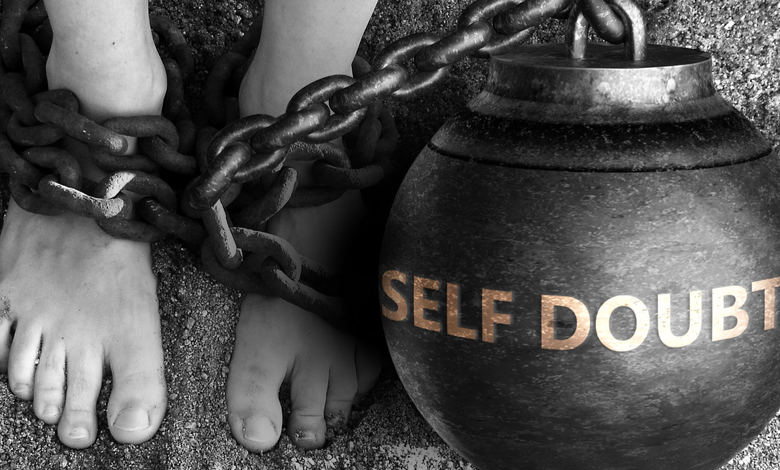Overcoming Self-Doubt: How to Embrace Confidence and Unlock Your Potential

Self-doubt is something that everyone experiences at some point in life. It whispers questions of “Am I good enough?” or “What if I fail?” into our minds, often holding us back from seizing opportunities and pursuing our dreams. However, learning how to overcome self-doubt is essential for personal growth and success. While it’s natural to experience moments of insecurity, it’s important to recognize that self-doubt doesn’t have to define your path. Here, we’ll explore why self-doubt arises, how it affects us, and practical ways to conquer it and unleash your true potential.
Understanding Self-Doubt: Why Does It Arise?
Self-doubt typically stems from past experiences, fear of failure, or external pressures. These doubts can manifest in different ways—whether it’s hesitation in pursuing a new project, reluctance to speak up in a meeting, or feeling unworthy of love or success. Some common causes of self-doubt include:
- Perfectionism: The desire to do everything flawlessly can lead to self-doubt when we inevitably make mistakes.
- Comparison: With the rise of social media, it’s easy to compare our achievements, appearance, or lifestyle with others, fueling feelings of inadequacy.
- Past Failures: Previous setbacks may leave us feeling that we’ll never succeed, causing us to doubt our abilities moving forward.
- Negative Self-Talk: The inner critic can become a constant source of doubt, feeding our minds with thoughts of “I’m not good enough.”
While these feelings are common, they are not permanent. Overcoming self-doubt is about learning to challenge these fears, silence your inner critic, and replace negative beliefs with empowering ones.
The Impact of Self-Doubt: Why It Holds Us Back
Self-doubt doesn’t just affect how we feel about ourselves—it directly impacts our actions and decision-making. When we doubt our abilities, we are more likely to:
- Miss Opportunities: Self-doubt often leads to hesitation, preventing us from taking advantage of opportunities that could lead to personal and professional growth.
- Procrastinate: Fear of failure or imperfection may cause us to delay tasks, thinking that we’re not ready or capable enough.
- Settle for Less: Self-doubt can lower our expectations, leading us to settle for mediocrity rather than aiming high and striving for our full potential.
- Sabotage Relationships: Insecurities can affect how we relate to others, leading to trust issues, jealousy, or feelings of unworthiness in relationships.
The good news is that self-doubt is a mindset that can be changed with time and effort. Here’s how you can work towards overcoming it.
1. Recognize and Challenge Negative Thoughts
The first step to overcoming self-doubt is identifying when it’s happening. Start by paying attention to your inner dialogue. What thoughts arise when you’re feeling uncertain or insecure? Are you telling yourself that you’re not capable or that you’ll fail?
Once you’ve identified these negative thoughts, challenge them. Ask yourself:
- Is this thought based on fact or assumption?
- Have I succeeded in similar situations before?
- What’s the worst that could happen, and how could I handle it?
By questioning your doubts, you can start to see that many of them are irrational and unfounded. Replacing negative thoughts with positive, constructive affirmations can help you reframe your mindset.
2. Focus on Progress, Not Perfection
Perfectionism is one of the biggest drivers of self-doubt. The pressure to be flawless can prevent you from taking risks or trying new things because you’re afraid of making mistakes. The truth is, no one is perfect, and mistakes are a natural part of growth.
Rather than striving for perfection, focus on making progress. Celebrate your small wins, and view setbacks as opportunities to learn and improve. Remember, it’s the effort and progress that counts, not the unattainable goal of perfection.
3. Stop Comparing Yourself to Others
Comparison is a thief of joy and confidence. In today’s hyper-connected world, it’s easy to fall into the trap of comparing your life, career, or appearance to others. However, comparing yourself to others is neither fair nor productive. Everyone’s journey is unique, and what works for someone else may not be your path.
Instead of looking outward, focus on your personal growth and achievements. Take pride in your individual progress and remember that success looks different for everyone. Your value is not determined by how you measure up to others but by how you evolve on your own terms.
4. Embrace Failure as a Learning Opportunity
One of the greatest sources of self-doubt is the fear of failure. However, failure is not the end—it’s a stepping stone on the path to success. Everyone who has achieved great things has faced failures along the way. The key is to reframe your mindset and see failure as feedback, not defeat.
When you experience a setback, ask yourself:
- What can I learn from this?
- How can I apply this lesson moving forward?
By embracing failure as a natural part of growth, you can reduce your fear of it and build resilience. Each stumble becomes an opportunity to gain new insights and move forward with confidence.
5. Build a Supportive Environment
Surround yourself with positive and supportive people who believe in you and your abilities. A strong support network can provide encouragement and feedback when you’re feeling doubtful. Share your concerns with trusted friends, mentors, or family members who can offer perspective and reassurance.
At the same time, minimize exposure to negative influences or individuals who may exacerbate your self-doubt. Build relationships that uplift and empower you to take bold steps in your life.
6. Celebrate Your Achievements
It’s easy to downplay our achievements when we’re caught in the cycle of self-doubt. However, taking the time to acknowledge and celebrate your accomplishments—both big and small—can significantly boost your confidence.
Create a list of your past successes and revisit it whenever you’re feeling unsure of yourself. Remind yourself of the challenges you’ve overcome and the goals you’ve reached. This practice helps you build a positive self-image and reinforces the belief that you are capable and worthy of success.
7. Practice Self-Compassion
Being kind to yourself is crucial when overcoming self-doubt. Treat yourself with the same compassion and understanding you would offer a friend facing the same struggles. Accept that you are human, and that it’s okay to have moments of uncertainty or imperfection.
Rather than being overly critical of yourself, offer yourself encouragement and grace. Recognize that self-doubt is natural, but it doesn’t define you or your worth.
Conclusion: Believe in Yourself and Your Journey
Overcoming self-doubt is a process that requires patience and persistence, but it’s absolutely achievable. By challenging negative thoughts, embracing imperfection, and celebrating your progress, you can move beyond doubt and step into a place of confidence and self-assurance.
Remember, you are capable of more than you realize. Trust in yourself, surround yourself with positive influences, and take bold steps toward your dreams. Every time you push past self-doubt, you grow stronger, more resilient, and more equipped to create the life you truly deserve.




